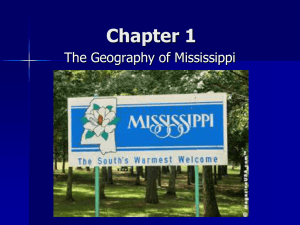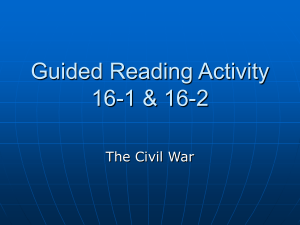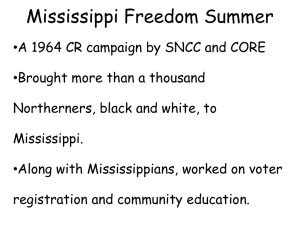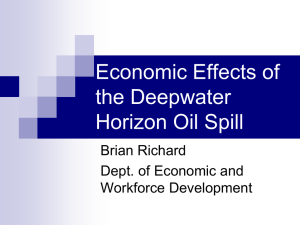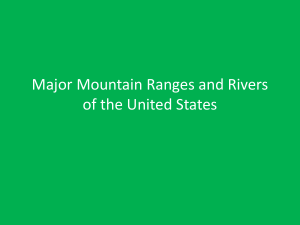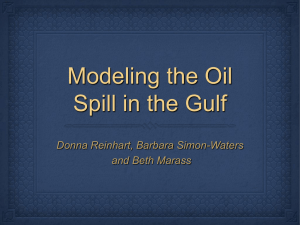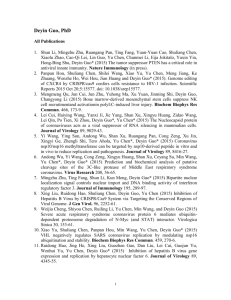Mass Media an Impact on the Economy
advertisement
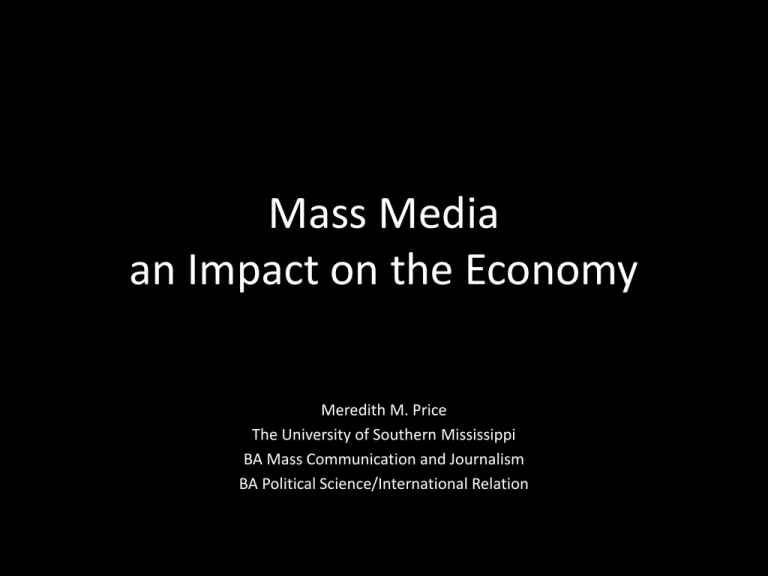
Mass Media an Impact on the Economy Meredith M. Price The University of Southern Mississippi BA Mass Communication and Journalism BA Political Science/International Relation Media Functions • Print, radio, television, Internet, and social networks are common types of media. • Media extends out to large masses of people and provides information to the public on various subjects, entertain, and to gratify people’s curiosities. • Since 2000 mass media has expanded and become more obtainable—cell phones, iTouch, and laptops. • Consumers often consult mass media and base daily decisions from the information received. Westley-MacLean Model (1955) X (Objects of Orientation) A (Advocacy) C (communicator) B (Receiver) F (Feedback) Source: Westley, B., and M. MacLean. 1957. “A conseptual Model for Communication Research.” Journalism Quarterly, 34:31-38 Media Effects • McGuire noted several of the most commonly mentioned intended media effects are; (a) the effects of advertising on purchasing, (b) the effects of political campaigns on voting, (c) the effects of public service announcements (PSAs) on personal behavior and social improvement, (d) the effects of media ritual on social control (McGuire, 1989). McGuire also pointed out the most commonly mentioned unintended media effects; (a) emotional behavior, (b) the impact of media images on the social construction of reality, (c) the effects of media bias on stereotyping, and (d) how media forms affect cognitive activity and style (McGuire, 1989). Key Concepts • Agenda Setting- The agenda-setting function of the media refers to the media’s capability, through repeated news coverage, of raising the importance of an issue in the public’s mind (Severin, Tankard pg. 219). • Priming-Media agenda setting determines the criteria by which an issue will be evaluated (Iyengar, Kinder, Peters, 1982). This concept is known as priming. Priming is the process in which media attends to particular issues and not others and thereby alter the standards by which people evaluate and act on an issue (Chapel Hill Study McCombs Shaw 1972 election and issue highlights) Good news vs BAD news • Cultivation theory, used in mass media studies, is a concept that explains how people’s perceptions, attitudes, and values change from consumption of media. • Psychological literature supplements the cultivation theory by suggesting that unfavorable information has a greater impact on impression than does favorable information, across a wide variety of situations (e.g., Ronis and Lipinski 1985; Singh and Teoh 2000; Van der Pligt and Eiser 1980; Vonk 1993, 1996). • Research in economics posits a prospect theory (Kahneman and Tversky 1979). Prospect theory is a choice under uncertainty, which contains a feature called loss aversion. People react more fervently towards a loss in utility than they do towards a gain of equal magnitude (Soroka, 2006). This individual-level loss adverse behavior is evident in macroeconomic dynamics: consumption tends to drop more when the economy contracts than rise when the economy expands (Bowman, Minehart, and Rabin 1999). Surveillance • Surveillance of the media includes economy facts, stock market reports and the overall well being of a nation (Severin and Tankard, p. 321, 2006). Surveillance function can cause several dysfunctions such as panic due to the overemphasis of issues facing a society. Lazarsfeld and Merton (1948/1960) noted that “narcotizing” dysfunction when individuals fall into a state of apathy or passivity as a result of too much information to assimilate may leave many audience members with little perspective of what is normal. Negative reports on the national economy led to a fall in consumer confidence ? The 1990 slowdown • Findings conducted by Chauvet and Guo (2003) pointed out that consumption growth did switch to a low-growth state at the beginning of the 1989 slowing of the economy (Figure 2). Consumer confidence also fell during the slowing, as observed in all the previous low-growth phases and recessions (f1) (Chauvet and Guo, 2003). However, the probabilities of consumer pessimism based on non-fundamentals rose only in July 1990, which coincided with the onset of this recession (Figure2). The same pattern was observed for growth in personal income, manufacturing trade and sales, and employment, whose falls coincided with the beginning of this recession. Therefore, consumers’ pessimism did not seem to be a source of this recession (Chauvet and Guo, 2003). More on Chauvet and Guo findings • However Chauvet and Guo (2003) notes that consumers’ pessimism may have been an important factor in intensifying and extending the 1989-1992 economic slowdown. The figures created by Chauvet and Guo (2003) reveal that low consumption growth phase lagged consumers’ pessimism, and lasted until the end of the sample in 1995. Thus, the unprecedented extended slowdown could have been a reflection of consumers’ attitudes toward the economy after the official end of the 1990 economic recession (Chauvet and Guo, 2003). News Refraction Hypthesis • Self-fulfilling pessimism is the result from news refraction hypothesis suggested by McLeod and associates (1995). Their hypothesis suggests that local content of news media exposure could have a strong influence on perceptions of issues and the “closeness of home”. Therefore, viewer’s doubts suppress the urge for action, and a reclusive approach is taken towards issues (McLeod et al., 1995). THE RESEARCH A work in progress…..please put up with my airheaded rambling for a little longer thanks. Case study: Media coverage of Deepwater Horizon Spill and its impact on the Economy Why and Who Cares? Public opinion of greatest threat from the Deepwater Horizon Oil Spill: Mississippi Gulf Coast No Threat residents only; October 21, 2010 Mental Health 5% 4% Economic Ecological Ecological 33% Economic 58% Mental Health No Threat Public Opinion: Possible Factors of Mississippi Gulf Coast economic decline (200 persons) October 25, 2010 Hurricane none Katrina 16% 5% Mass Media 38% Mass Media National Recession Hurricane Katrina National Recession 41% none Insight of how the media reacted Unlike most catastrophes, which tend to break quickly and subside almost as fast, the spill was a slow-motion disaster that demanded constant vigilance and sustained reporting (journalism.org). Combined data: Word/Article Count of the Sun Herald, Times-Picayune, Mobile Press-Register, Retail Sales, Unemployment of the three costal counties of Hancock, Harrison, Jackson. As the surge of media reports on the oil spill flooded the mass media, economic impact along the Mississippi Gulf Coast experienced little significant growth. Overall, the oil spill created job losses and also crushed the fishing industry BP created temporary jobs along the gulf states and also occupied hundreds of hotel rooms. These factors are significant in contributing towards the economic data researched It is still too premature to know if media significantly impacted, but people’s perceptions have been shaped to an extent of the Mississippi Gulf Coast and tourism could suffer in the future. Source: Mississippi Gross Retail Sales: Mississippi Department of Revenue: Unemployment Rate by County Mississippi Department of Employment Security Adam Sacks, managing director of Oxford Economics USA mentioned that “History and current trends indicate a potential $22.7 billion economic loss to the travel economics of the Gulf Coast states over the next three years could be possible” (Sun Herald 07/24/2010). Sacks continues, “One of the most costeffective ways to mitigate these damages is to immediately fund strategic marketing to counter misperceptions and encourage travel to the region” (Sun Herald 07/24/2010). Misperception created by the media is a factor that Sacks mentions in his consulting towards the Gulf Coast tourism sector. I am still awaiting further comment from Mr. Sacks and how he formed his theory.
